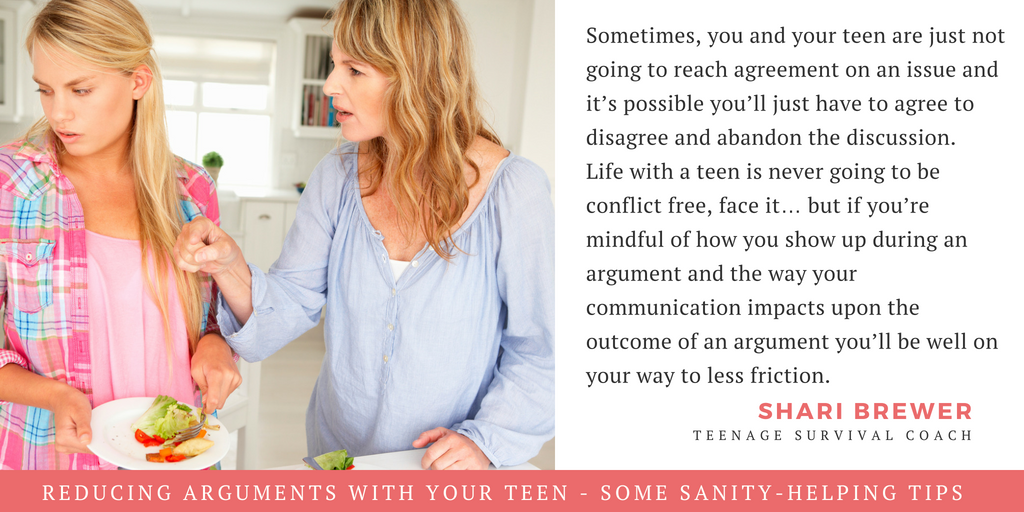It’s a bit of a generalisation to say that people seem to have less tolerance and patience today…. but hey, it does seem bang on, don’t you think? So… when you’re short on time and patience… AND needing to deal with a teenager whose sole purpose may be to stir your pot and push your buttons, it’s probably no wonder teen-parent conflict is a huge issue for many families.
If you’re sick of the conflict and live in fear it’ll be this way forever, don’t panic.
With some mindful communication it IS possible to improve the relationship with your teen and avoid the emotional fallout that comes with constant friction and arguing.
Here’s a heads up though, making things better for you both is fundamentally going to rely on YOU – as the adult – learning to gauge and handle the heat of every argument. It means seeing what’s adding fuel to the fire and then choosing the best way to deal with it.
No promises that it’ll be easy, but practicing these strategies is worth it and just remember you don’t need to win every battle to win the war!
Take time to cool off and gain back control of yourself
Often when a heated argument arises we lose control of our emotions. I’ve certainly been guilty of this and it’s a basic ‘fight or flight’ response to conflict.
Holding your power as a parent doesn’t mean ‘winning’ every argument and keeping composed in the heat of a tense moment will teach your teen a wonderful lesson about conflict management.
- To cool down, recognise that you’re losing control. This means identifying and understanding the physical sensations that come when you get angry.
- An inward focus on your own emotional response allows you to begin rationalising the situation with logic instead of only feelings
- Deep, slow breathing is a physical strategy that can help you reduce heightened emotions
Speak softly and gently towards a solution
If you and your teen are arguing, it’s important not to speak with a loud, aggressive or sarcastic tone. It won’t get you anywhere. Instead, speak with a calm voice and the intention of finding a solution to work things out.
- A loud voice tends to worsen the situation as the other raises their voice in return and soon it’s a screaming match. This is ineffective communication and can damage the relationship.
- A solution focussed approach requires both parties being willing to be part of the fix – you’ll probably need to model this for your teen and it’s certainly aided by compassionate communication.
- When reflecting on your tone and language, a simple question to reflect on could be “is my approach contributing to the problem or helping towards a solution?”
Avoid dragging up issues from the past
In times of conflict, people tend to bring up all the old unresolved issues and throw them in to the pot. Perhaps the current issue reminds you of something in the past which remains unresolved, maybe it relates to something you’ve had to discuss time and time again?
- Regardless, and as hard as it might be, it’s crucial you don’t bring old matters to the present argument.
- Bringing up past problems shows an unwillingness to forgive the past and will immediately have your teen on the defence and bristling
- Just focus on the present issue and how to best resolve it and move forward.
Agreeing to disagree
Sometimes, you and your teen are just not going to reach agreement on an issue and it’s possible you’ll just have to agree to disagree and abandon the discussion.
Learning to compromise with your teen is all well and good when it comes to minor issues but of course when their well-being and health is concerned you should still pull rank!
Life with a teen is never going to be conflict free, face it… but if you’re mindful of how you show up during an argument and the way your communication impacts upon the outcome of an argument you’ll be well on your way to less friction.

